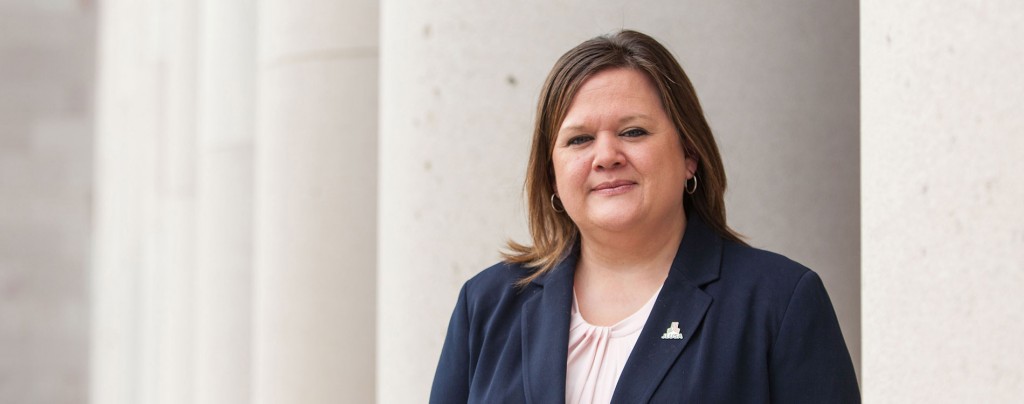Page 351 • (3,530 results in 0.099 seconds)
-
produced by University of Texas Health School of Nursing The relevance of the role of healthcare providers in the events in Nazi Germany to today’s healthcare providers will be discussed. The journey of a school of nursing in making a film about nurses in Nazi Germany as well as of the use of the film in nursing education is explored. Commentator and Presenter: Cathy L. Rozmus, Ph.D., R.N. Vice Dean UTH Professor Francis Nicosia Moderator: Robert P. Ericksen, Mayer Chair of Holocaust Studies, Emeritus
-
will ping phones and offer fun facts about the historic theologian. All of the engaging events, including some that have yet to be determined, will build up to the milestone anniversary on Oct. 31, 2017, allowing a community to reflect together on a movement that continues to shape our values today. Challenging Authority Though he had the greatest impact, Luther was not the first to challenge the authority of church leaders. Samuel Torvend, Ph.D. and chair of Lutheran studies at PLU, explained that
-
Studies, and a Ph.D. in Musicology from Yale University. She held full-time faculty and administrative positions at the University of Michigan and the University of California, Irvine. From 2008–16 Rae Linda served as associate provost for undergraduate education and held the faculty position of professor of music at Loyola Marymount University, Los Angeles. In August 2016, Rae Linda began a new position as provost and senior vice president for academic affairs at Pacific Lutheran University. Her
-
her time on The Voice. Guest Contributors Samuel Torvend, Ph.D. Samuel Torvend, Ph.D., is professor of the history of Christianity and currently serves as the university chair in Lutheran studies. As a historian of Christianity, his research focuses on the history of religious responses to poverty and food insecurity. He also teaches courses on religious art and architecture and their role in reforming movements. Among his published works are Luther and the Hungry Poor: Gathered Fragments . Kevin
-
Dean of the College of Liberal Studies) What gets you up in the morning? I get my greatest sense of purpose by going to work. How does your work at PLU impact the PLU community? My job has grown over the years and I’ve been able to learn how to guide our faculty, create ideas, and take in their ideas. If faculty had a student that was panicking in their class, I would be the one to listen to what other folks have to say, get them something to eat or drink, and when they start calming down, you can
-
Lutheran studies at PLU, explained that Luther’s native Germany was already a hotbed of discontent, with many Germans increasingly frustrated with church practices. Torvend said Luther’s path to revolution started with a personal quest to find answers to his own questions about salvation and damnation. He would frequently ask his religious superiors what he needed to do in order to be with God in the afterlife. “That really kind of drove him crazy,” Torvend said. “On the one hand he’s told he can do
-
students’ working relationship with faculty members helps students become entrenched in their studies. Through student-faculty research, students incorporate their own experiences with academia in a way that Lewis says improves critical thinking, writing and understanding of students’ subjects of interest. Cynthia Waite '20 Waite’s project, a study of faculty-student mentoring, caught the spirit of the day. Psychology Professor Wendelyn Shore, an expert on the topic, was Waite’s mentor, and was
-
era.School of the ArtsDate and Artist: 1988; Tom Torrens See it: Located on the western entry of upper campus. “The School of the Arts” sign is a combination of materials including neon letters that spell out “arts”. This is sculpture was commissioned by the School of Arts now the College of Professional Studies and is approximately eight feet long and eight feet high.Generations of OakDate and Artist: October 26, 1995; Kathryn Wold (Sparks) See it: Located on lower campus below the music center. The
-

applied (for the bar).” Simmons went all in on that bet. She met with Shon Hopwood, a lawyer and author of “Law Man: My Story of Robbing Banks, Winning Supreme Court Cases, and Finding Redemption.” Hopwood graduated from the University of Washington Law School after serving time for crimes he committed. “He said ‘you absolutely can (become a lawyer),’” Simmons recalled, “and he told me exactly how to do it.” And she did. Just as she did during her time at PLU, Simmons leaned into her studies and then
-
, Simmons leaned into her studies and then some. She got to know legislators in Olympia, working on criminal justice reform. She did internships, externships and other work that far exceeded the status quo. Strait and Simmons were confident when they brought the body of work to the Washington State Bar Association Character and Fitness Board for review, ahead of her bar application. “He said in all of his life he had never seen a record of rehabilitation like mine,” Simmons said. “He felt really, really
Do you have any feedback for us? If so, feel free to use our Feedback Form.


